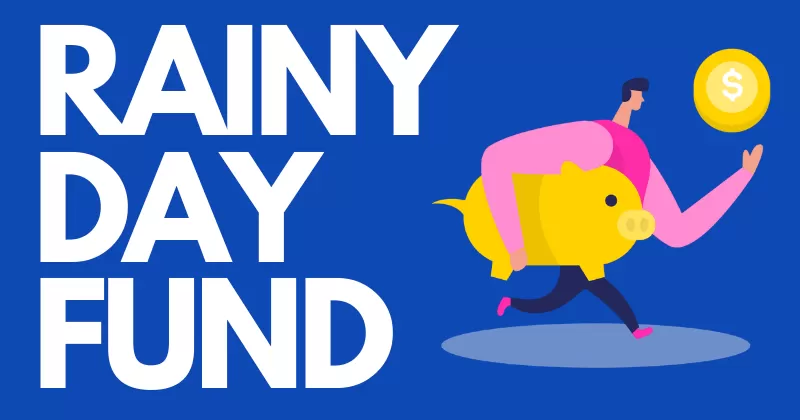Life in the UK can be full of surprises—some sweet (like a random jollof party invite 🎉), and others not so sweet, like your car breaking down, a last-minute school trip for the kids, or an emergency trip to the GP. While we can’t always predict these twists, we can prepare financially—and that’s where a rainy day fund comes in.
In this guide, we’ll break down what a rainy day fund is, why every Naija household in the UK needs one, and how to build yours step by step.
What Is a Rainy Day Fund?
A rainy day fund is a small pot of money set aside for those minor, unplanned expenses that come with adulting in the UK. It’s different from a full-blown emergency fund, which is meant for major events like losing a job or a medical emergency.
Instead, this fund covers the everyday “wahala” that can mess with your budget—like replacing a broken kettle, fixing your phone screen, or paying for an unexpected train fare to London for an urgent appointment.
Why Nigerians in the UK Need a Rainy Day Fund
1. To Avoid Running Into Debt
In the UK, it’s easy to swipe your card and end up with a growing overdraft or credit card bill. A rainy day fund helps you stay independent and avoid falling into the cycle of borrowing.
2. For Peace of Mind
Unexpected bills are already stressful. Knowing you have a small stash of cash ready helps reduce anxiety when life happens.
3. To Stay in Control of Your Finances
Instead of dipping into your rent money, school fees fund, or savings for that December trip to Lagos, a rainy day fund keeps your financial plans on track.
4. To Handle Family Obligations
Sometimes, back home in Naija, an urgent call can come: someone is ill, or school fees are due. While you may have a separate fund for remittances, a rainy day fund gives you flexibility to respond without disrupting your main budget.
How Much Should You Save?
There’s no one-size-fits-all, but a good starting point is between £300 to £800. This amount can cover most typical expenses—like appliance repairs, school needs, or minor car issues.
If you have a car or kids in school, you might want to aim for the higher end. If you’re single and using public transport, a smaller amount could be enough.
Step-by-Step: How to Build Your Rainy Day Fund
1. Start Small
No need to stress. Even £20–£50 a month is a great start. What matters is consistency.
2. Cut Back on Small Luxuries
Take a look at your budget. Can you skip one takeaway a week or pause a subscription? Redirect that money into your rainy day pot.
3. Automate It
Set up a standing order or automatic transfer to a separate savings account each time you get paid. Out of sight, out of mind—but ready when needed.
4. Use Extra Income Wisely
Tax refund? Work bonus? Birthday cash? Instead of splurging it all, put a portion into your rainy day stash.
5. Make It a Non-Negotiable
It’s tempting to focus on long-term goals like saving for a mortgage or sending money home. But short-term readiness is just as important. Your rainy day fund is your first layer of defence.
Where Should You Keep It?
Keep it somewhere separate from your main account—but still accessible. Here are good options:
-
High-Interest Savings Account: Many UK banks and online-only banks like Monzo, Starling, or Chase offer good rates and easy access.
-
Secondary Current Account: Use a different bank or sub-account just for this fund.
-
Avoid risky investments like stocks or crypto. Your rainy day money should be safe and stable.
Final Thoughts
Building a rainy day fund might not sound exciting—but the peace of mind it brings is priceless. Whether you’re supporting family here or back in Naija, being prepared for life’s small surprises means fewer money worries and more financial freedom.
Start small. Be consistent. And remember, in this UK life, having backup cash is not just smart—it’s survival. 💷🌧️🇳🇬🇬🇧
Naija UK Connect – helping Nigerian families thrive abroad.
💡 Want more money tips? Visit our blog
Join Our WhatsApp Channel
Stay updated on the latest UK news, including education, health, job openings, and more for those living in the UK!
Join here: Naija UK Channel
Also, follow us on our social media channels for the latest updates and discussions:
- Twitter: @NaijaUKConnect
- Facebook: Naija UK Connect
- Instagram: @naijaukconnect




